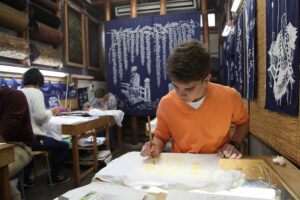Here’s How Colleges and Universities Are Reacting to Ukraine’s Invasion
Russia’s invasion of Ukraine has killed and injured countless people, making it “one of the most defiant terrorist attacks in European history.” According to NPR, the Russian missile struck a crowded shopping mall in the central Ukrainian city of Kremenchuk. This war has impacted in every area, including geopolitics, foods and economics, energy, and security, causing shortages of wheat, barley, corn, and other grains and pushing millions of people into hunger, as well as energies that most of the European Unions have been relying on to Russia, has faced Russia’s demand for payments in rubles and has sought alternative sources.
While the Ukraine war has had an impact on global supply chains, it is undeniable that it has had an impact on education. Higher education, particularly colleges and universities, is reacting differently to the Russia-Ukraine situation.
According to Fierce Education, administrators and staff members at some universities and colleges are showing their support for Ukrainian people by notifying and announcing their support directly for Ukrainian people, either by holding an international event to support Ukrainian students at college or by making an announcement.
For example, Louisiana State University held an event at the International Cultural Center to raise awareness about the Ukraine War and, of course, to raise funds for the Ukrainian army.
According to Higher Ed Dive, the Massachusetts Institute of Technology ended a long-standing relationship between the two research institutions that was backed by the Russian government, eventually terminating the MIT Skoltech Program — despite the great respect and appreciation for the contributions of Russian colleagues.
Another example would be Jeffrey Hanley, who, according to Penn State University news, has used the skills he learned in the Penn State online MBA to assist Ukrainian refugees in the United States. The border with Mexico. He also stated that the country would accept 100,000 Ukrainian refugees who have arrived at the San Ysidro Port of Entry — “A lot of that comes back to the skills and abilities I developed,” Hanley said, adding, “I really do love my country and believe that we have the power to make a difference in the world.”
The course he took assisted him with his supply chain management course in stacking resources, teaching him how to write the most concise and direct-action memos of his time, and learning about ‘Power and Influence.’

As some colleges and universities began to speak out against Russia, other colleges and universities in the United States stepped up to protect Ukrainian students. The Presidents’ Alliance on Higher Education and Immigration provided Ukraine students with deportation protection, allowing them to keep their visa status.
“I think closing their embassy in the United States, kicking every Russian student out of the United States, those should all be on the table, and Putin needs to know that every day that he is in Ukraine, there are more severe options that could come.” Said Rep. Eric Swalwell, emphasizing the wrongness of Russians to Ukrainians.
According to the University of Scranton’s home page, the university has a lighted gateway sign with the Ukrainian flag to show support and pray for peace and freedom to return to the Ukrainian people, as well as University of Colorado, where it has made its investments in Russian companies public, has now exited its investments in Russian companies to support the people of Ukraine.
“Like so many others, we have watched in horror as this invasion has brought senseless violence and aggression to the region,” said Todd Saliman, the President of University of Colorado, hoping to end this conflict.
Middlebury School, too, has announced a difficult decision regarding the Russian-Ukraine War, stating “Middlebury has made the difficult decision to suspend the in-person program for the School in Russia.” Militarily, the invasion has not gone the way anyone expected, and this has made it virtually impossible to make future predictions as to what the situation will be like in Russia for our students. The best way to ensure our students’ safety, which remains our top priority, is to remove students from Moscow and Irkutsk as soon as possible.”
However, Matt Duss, the Senator Bernie Sander’s foreign policy advisor, denied the idea, “This is empty hawkish posturing that would punish students while doing nothing to help Ukrainians,” retweeted on the post.
Colleges and universities are demonstrating the need to support Ukraine by donating or providing supplies, but they are also demonstrating tremendous support by announcing plans to withdraw from Russia in protest of the country’s invasion of Ukraine. “We’re just hoping that students take away how this is personally affecting a lot of us,” Larysa Brandys, president of the Ukrainian Student Association at the University of Illinois said.
Read more: Universities Should Not Cut Communication With Russia



